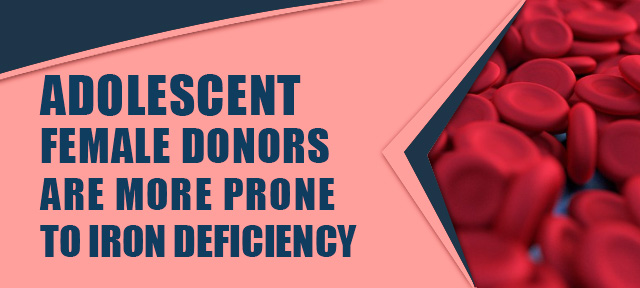The necessity of iron in our body
Iron is a quintessential constituent of hemoglobin, the pigment present in RBCs that assists in the transportation of oxygen throughout our body. Mostly iron is present in a ferric state that binds with oxygen while transporting through the body. Most importantly, Hemoglobin or Hb represents two-thirds of the body’s iron; therefore, the presence of enough iron is essential for the normal functioning of the body. Lac of iron due to any reasons leads to anemia.
How does anemia affect the body?
Anemia is a state with lack of enough healthy RBCs to carry sufficient oxygen to our body’s tissues. Suffering with anemia can exhaust us immensely. Anemia can be short-term or long term; it can also vary from gentle to extreme. Having anemia can show symptoms such as pale skin, weakness, fatigue, chest pain or shortness, and breath. If left untreated, it may lead to irregular heartbeats, problems during pregnancy, and growth problems.
Female donors are more expected to have deficiencies of Iron
A novel study led by researchers at Johns Hopkins recommends that female donors at young-age are more prone to iron deficiency or getting anemia. They also say that this might have considerable effects on their growing brains. As per the American Red Cross, every year, approximately 6.8 million people in the U.S. donate blood that organizes blood drives across the country. Per donation, about 200-250 milligrams are removed from the body. Also, females lose blood every month during menstruation.
Measures to combat this solution
Scientists make a note of those various federal strategies that are already in action to guard givers with iron deficiency. They follow the rules such as hemoglobin screening, the least weight to donate blood, and an intermission between donations for repeat whole blood donation. Nevertheless, further safeguards are like taking regular oral iron supplements, raising the minimum time interval between blood products such as platelets or plasma rather than whole blood could help diminish the loss of iron.
Conclusion
Practically there are not many donors to save lives, therefore denying them to donate blood won’t make sense. However, captivating a few measures would definitely help.

